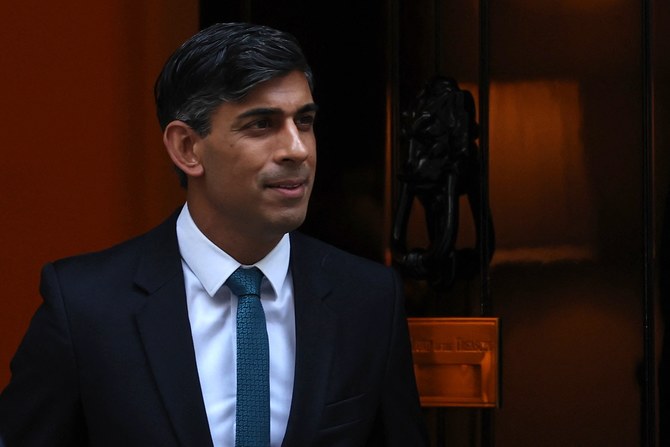Mohamed Chebaro
It is not an exaggeration to say that, far away from the Israel-Gaza border, this five-week-old conflict has claimed its first political victim. Suella Braverman, the UK interior minister who tried but failed to stop public demonstrations in support of a ceasefire in Gaza – using Armistice Day and Remembrance Day as an excuse – has been sacked. Braverman claimed that the demonstrations were “hate marches” and that they could spiral out of control to ruin the annual remembrance of those who have fallen while fighting for freedom in the First World War and subsequent conflicts.
The surprise ministerial reshuffle announced by Rishi Sunak on Monday followed growing criticism of Braverman’s inciteful rhetoric from opposition lawmakers and even members of her own Conservative Party. This enabled Sunak to remove her and other ministers he felt were not performing to bring in allies that could better serve his vision.
His hand was apparently forced when the ever-controversial Braverman defied him last week in publishing an unauthorized newspaper article accusing police of “double standards” at protests, suggesting they were tough on right-wing demonstrators but easy on pro-Palestinian marchers.
To be fair, both the prime minister and his interior minister were of the mind that Armistice Day and Remembrance Day should be celebrated without any interference from marches. They both thought the protests could spoil the remembrance events if violence erupted, but the police did not see the need to prevent them from going ahead.
The opposition Labour Party went even further and suggested that Braverman’s comments inflamed tensions between a pro-Palestinian demonstration and a far-right counterprotest in London on Saturday, when in reality both events should have been seen as occasions to reject wars and conflict.
This turn of events was used by Sunak as a pretext to get rid of some troublemakers in his government and reaffirm his grip on the party, even though he had to turn to old hands such as former Prime Minister David Cameron, who has been made foreign secretary.
Sunak’s act was seen by some as a bid to bring some sunshine back into public life, sidelining the ultra-right of the Conservatives and consolidating his leadership to better fulfill his promises to the country, as set out a year ago. But the reshuffle has been described as a “back to the future” moment that reflects how desperate the state of the Conservative Party has become after 13 years in power that have been plagued by austerity, the miscalculation of Brexit and, above all, disrepute in Britain’s political life through infighting, lies and instances of corruption.
If the reshuffle has revealed anything, it is that the country desperately needs a general election and a new mandate to bring some decency back into public life. People need to believe again that their future is in safe hands and that the country could turn a new page after the Conservative Party’s many years of internal and nationwide attrition.
Israel’s war on Gaza has surely been the catalyst that allowed this latest government reshuffle, but it remains doubtful that this will be enough to improve the chances of Sunak and his party at the next general election, as the polls are predicting a battering that could send the Conservatives back into the wilderness.
Many lawmakers will have breathed a sigh of relief at seeing Braverman go, as they feared she was determined to remodel the Conservative Party as a “Trumpist,” populist “nasty party,” with a hard-line view on immigration, the homeless and policing. Many also believed that she had a plan to focus her attention on preparing for a possible bid for the leadership of the party if the Conservatives lose the election that is expected next year, especially as the opposition Labour Party has consistently recorded a 20-point lead in the polls.
Sunak’s lack of experience at handling international crises on the scale of the Ukraine war or the Israel-Gaza conflict has been obvious, as he has failed to bring any constructive narrative to the table at a time that calls for level-headedness in a highly volatile region like the Middle East. Domestically, he tried to relaunch himself only a month ago as the face of change at his annual party conference, only to make a U-turn and cancel parts of the only large rail infrastructure project Britain has been promised for decades, to provide a fast train link between the south and north of England.
Many in the UK are sympathetic with Sunak and his efforts to stabilize the ship of government, despite the conflictive nature at the top of the Conservative Party, since his authority was clearly questioned when his home secretary attacked the police in her unsanctioned newspaper article. But the reshuffle can only be read as an act of desperation.
The only true offer of change he can make is to call a general election soon, as that might offer a real chance for the nation to be put on a long-term recovery track after the wasted years of Conservative government, even if such a conclusion is reached on the back of yet another crisis in the Middle East.
Arab News







